The Future of AI and Machine Learning in Job Searching
Exploring the transformative role AI and ML are playing in job searching and recruitment.
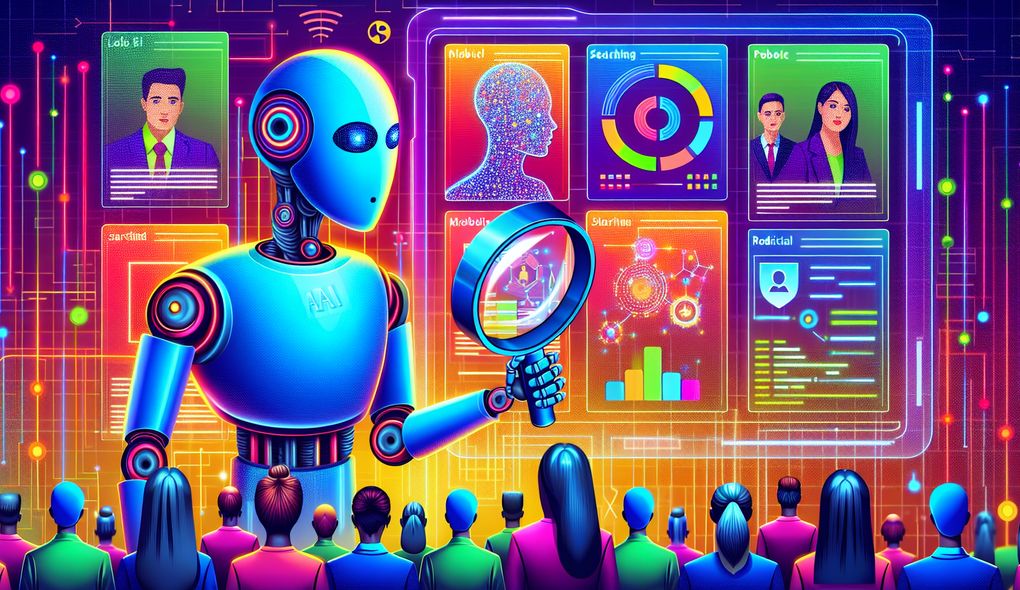
The advent of artificial intelligence (AI) and machine learning (ML) has led to significant changes across various industries, and the employment sector is no exception. These technologies are increasingly influencing the way job seekers search for jobs and how companies recruit talent. This shift is becoming more pronounced as these technologies continue to evolve and become more sophisticated.
AI and ML in Job Searching Today
Current job search platforms use AI and machine learning algorithms extensively to provide a more personalized and efficient experience for job seekers. These platforms can tailor job recommendations to each individual's skills, experiences, and professional desires, predict job search trends, and offer relevant career advice. Similarly, recruiters use AI to sift through vast numbers of applications to identify candidates who best match the job requirements.
The AI-Driven Future of Job Searching
Future job searching tools will likely incorporate even more advanced AI and machine learning capabilities. We can expect AI systems that understand the nuances of human communication, making them better at matching candidates to jobs where they're not only skilled but likely to be culturally and personally compatible.
Personalized Job Recommendations
Advanced ML algorithms could provide highly personalized job recommendations that go beyond matching keywords in a resume. They will likely be capable of analyzing a person's entire digital footprint―including social media, past job performance, and even the sentiment in their communications—to make these matches even more precise.
Enhanced Skill Matching
AI systems could develop the ability to map out the entirety of a person's skills—both hard and soft—and match them with job postings where those skills are underrepresented or particularly valuable. This sophisticated analysis could lead to a significant increase in job satisfaction as people find roles that fully utilize their abilities.
Talent Acquisition and Retention
Machine learning algorithms are expected to play a crucial role in not only acquisition but also retention. By analyzing employee data, these systems can predict which candidates are likely to stay with a company long-term, helping businesses decrease turnover and retain top talent.
Redefining Roles and Job Titles
The integration of AI into the job market could also lead to the creation of new roles and the redefinition of existing ones. As the nature of work changes due to AI, job titles may evolve to better reflect the new responsibilities and skill sets required.
Challenges of AI in Job Searching
The use of AI in job searching isn't without its challenges. There are concerns about privacy, the potential for algorithmic bias, and the risk of over-reliance on technology. As AI continues to automate more processes, there is also the question of how the job market will adapt to shifts in labor demand.
Mitigating Bias
Efforts must be made to ensure that AI systems avoid replicating human biases in recruiting. This involves sophisticated programming and constant monitoring to maintain fairness and neutrality.
Privacy Concerns
Striking the right balance between personalized job recommendations and user privacy is crucial. Job seekers need reassurance that their data are being used ethically and securely.
The Human Touch
While AI can greatly enhance the job search process, it's important to remember the value of human insight. The job search is a deeply personal experience, and AI tools should aim to support, not replace, human engagement.
Preparing for an AI-Enhanced Job Market
To prepare for an increasingly AI-driven job market, job seekers should focus on continuously developing their skills. They should also be aware of and adapt to the changing job landscape, which may require learning how to interact with AI systems and understanding the metrics by which they are evaluated.
Similarly, companies need to invest in training HR professionals to work alongside AI tools, ensuring that these technologies are used to complement human decision-making.
Conclusion
The future of AI and machine learning in job searching promises greater efficiency and personalization. However, it's vital that both job seekers and employers approach this future thoughtfully, considering the potential benefits and challenges of such technologically advanced job search strategies. As we move forward, the goal should be to create a seamless and fair job search ecosystem where AI supports human aspirations rather than constrains them.
Frequently Asked Questions
1. How is AI and machine learning changing the job searching landscape?
AI and machine learning are revolutionizing job searching by providing personalized job recommendations, enhancing skill matching, and redefining roles and job titles. These technologies streamline the recruitment process for both job seekers and recruiters.
2. What can job seekers expect from future job searching tools?
Future job searching tools will offer highly personalized job recommendations based on an individual's digital footprint, advanced skill matching capabilities, and potential for improved talent acquisition and retention. These tools will likely reshape how individuals find and secure employment.
3. What are the challenges of using AI in job searching?
Challenges of AI in job searching include concerns about bias, privacy issues, and the importance of maintaining a human touch in the recruitment process. Mitigating bias, ensuring privacy, and balancing technology with human insight are key considerations in the evolving job market.
4. How can job seekers prepare for an AI-driven job market?
Job seekers can prepare for an AI-driven job market by continuously developing their skills, staying abreast of industry changes, and learning how to navigate AI systems. It's essential for individuals to adapt to the evolving job landscape to remain competitive in the changing employment environment.
5. What should companies do to leverage AI in recruitment effectively?
Companies should invest in training HR professionals to work alongside AI tools, ensuring a harmonious integration of technology and human decision-making. By utilizing AI effectively, businesses can enhance talent acquisition, improve retention rates, and optimize recruitment processes for greater efficiency.
Further Resources
For readers interested in delving deeper into the topic of AI and Machine Learning in job searching, the following resources provide valuable insights and knowledge:
- The Impact of AI and Machine Learning on Recruiting and Hiring This comprehensive report by the Society for Human Resource Management (SHRM) explores the implications of AI and ML on the recruitment process.
- How AI is Revolutionizing the Job Market Forbes Tech Council discusses the transformative power of AI in shaping the job market and how it benefits job seekers and recruiters.
- The Future of Work: AI, Robotics, and Automation The World Economic Forum's report provides insights into the future of work and the role AI, robotics, and automation will play in shaping job opportunities.
- AI Recruiting Tools: Benefits and Challenges BuiltIn explores the benefits and challenges of using AI in recruiting, highlighting important considerations for both job seekers and recruiters.
- Ethical AI in Hiring: Ensuring Fairness and Transparency IBM Watson discusses the importance of ethical AI practices in hiring to ensure fairness and transparency throughout the recruitment process.
- The Role of Soft Skills in an AI-Driven Job Market Wired magazine explores the significance of soft skills in a job market influenced by AI, emphasizing the human qualities that remain essential in the digital age.
- LinkedIn Learning: AI and Machine Learning Courses LinkedIn offers a variety of courses on AI and machine learning to help individuals enhance their skills and adapt to the evolving job market.
- How to Prepare for AI-Enhanced Job Searches Harvard Business Review provides strategies for job seekers on how to prepare for an AI-enhanced job search and leverage technology to their advantage.
These resources offer a wealth of information for those keen on understanding the impact of AI and ML on job searching and recruitment, as well as guidance on navigating the evolving job market.

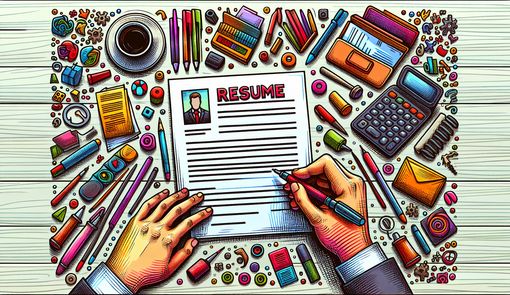 Resume and Cover Letter Writing
Resume and Cover Letter Writing Interview Preparation
Interview Preparation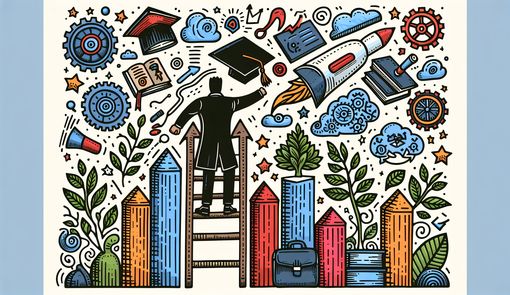 Career Development
Career Development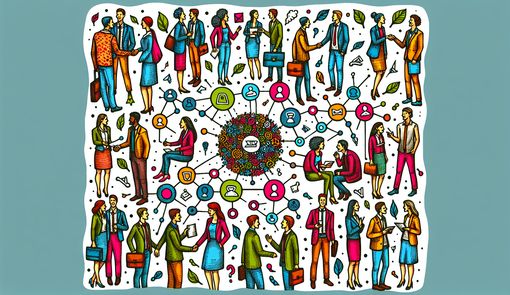 Networking and Personal Branding
Networking and Personal Branding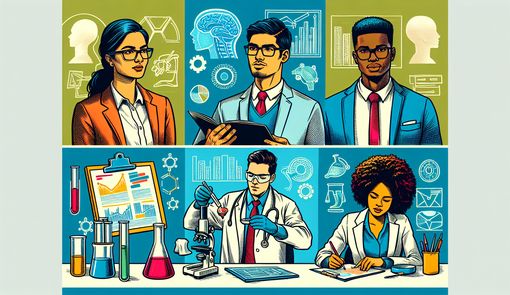 Workplace Skills
Workplace Skills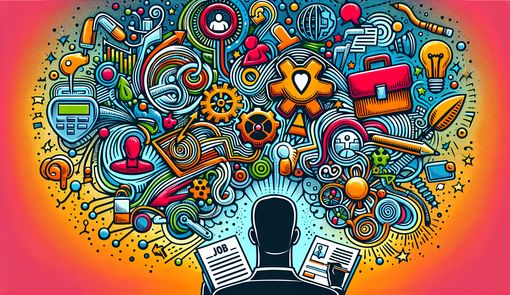 Job Search Strategies
Job Search Strategies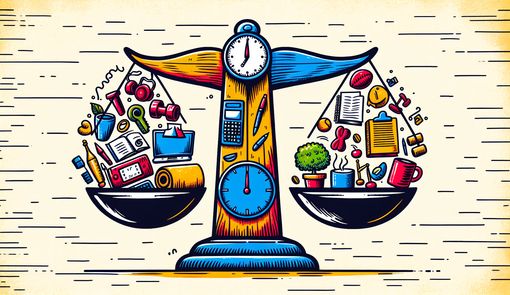 Work-Life Balance
Work-Life Balance Salary Negotiation
Salary Negotiation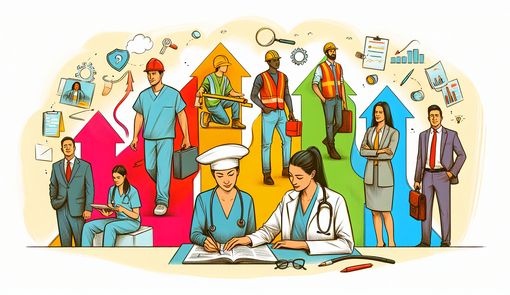 Career Transitions
Career Transitions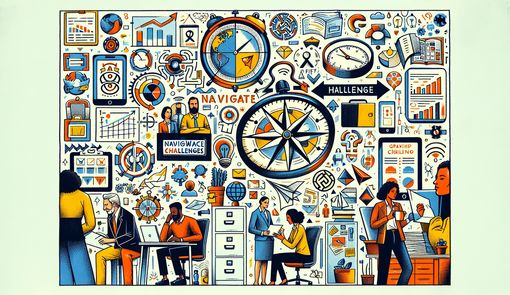 Navigating Workplace Challenges
Navigating Workplace Challenges Professional Growth
Professional Growth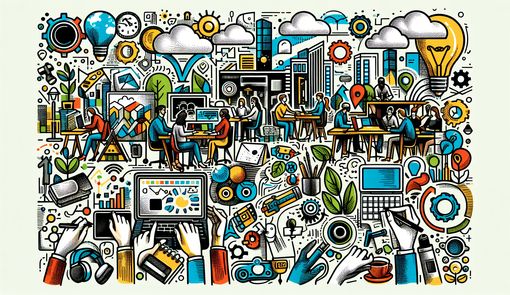 Trends in the Workplace
Trends in the Workplace